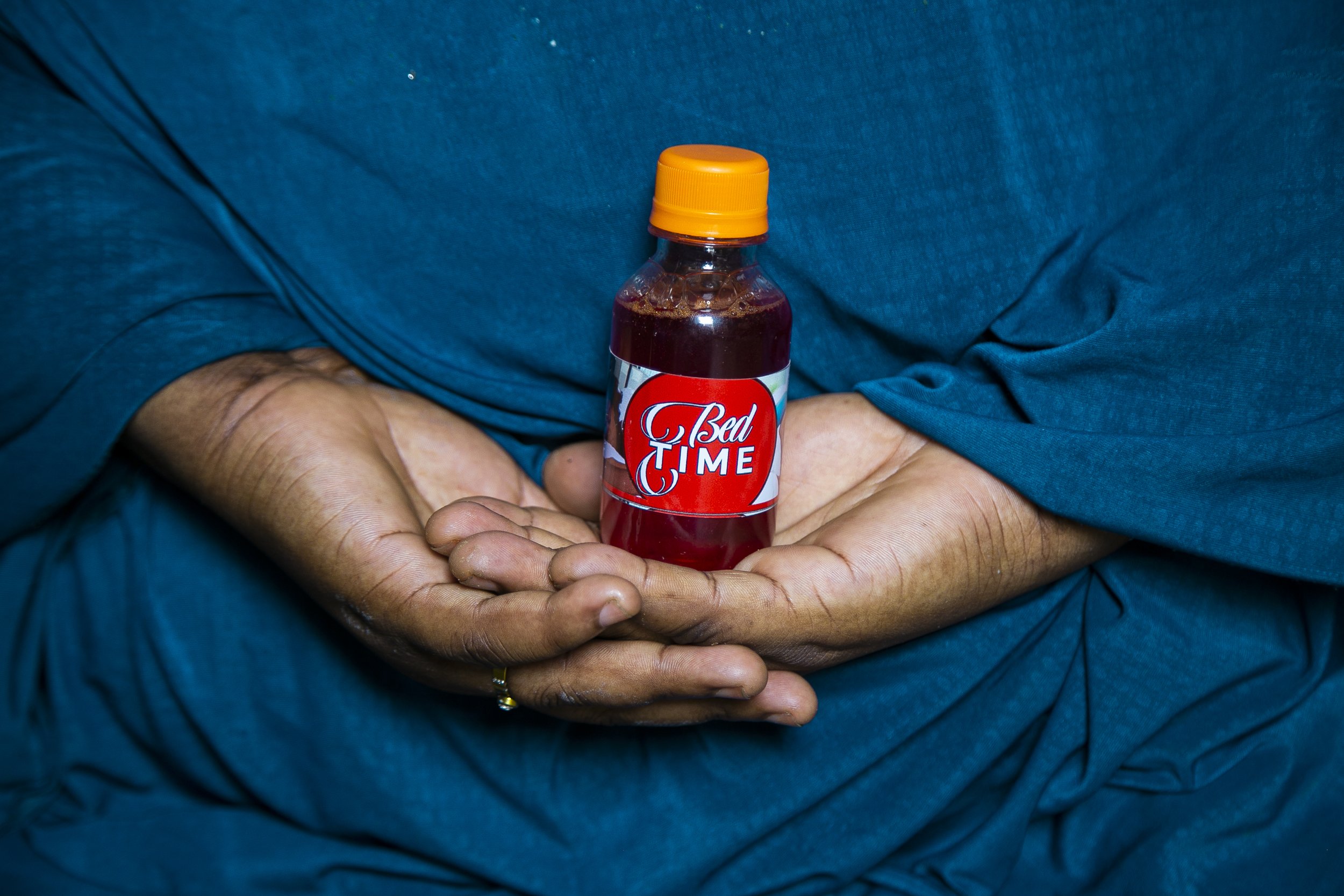Kayanmata, a Hausa term meaning “women's things,” has become a prominent topic of conversation in Ghana’s Muslim neighbourhoods called “zongos,” sparking heated discussions among men and women alike. It encompasses a wide range of remedies, powders, pills, potions, and accessories used by women to enhance the sexual pleasure of men and sometimes of themselves. While kayanmata has long played a discreet role in the married lives of people in the zongos, it has recently found a wider audience, including young unmarried girls and women outside the zongo.
This exhibition is the result of a collaborative research project between photographer Fibi Afloe (Nuku Studio, Ghana) and anthropologist Ann Cassiman (University of Leuven, Belgium), documenting the uses, meanings, and moral conversations surrounding kayanmata in Nima, one of Accra’s most dynamic neighbourhoods.
Often referred to as “the headquarters of kayanmata in Ghana,” Nima is home to a diverse range of users and sellers, reflecting the booming and lucrative nature of the business today.
Through deep conversations with married and unmarried women and men, Cassiman and Afloe explore the moral anxieties and dissonances about women and their sexuality that kayanmata reveals. The debates surrounding kayanmata are intimately tied to women’s expectations, resistances, and desires within marriage, and their fears of unfaithful men, of cowives joining their households, or of remaining single and being pushed out of the marriage market. The exhibition also explores the impact of kayanmata on couple relationships. Many kayanmata products promise to give women control over their sexual partners, a prospect that instills suspicion and wariness in men, who fear being manipulated by the women’s “tricks”.
At the same time, it illustrates how, through therapeutic moments of counselling and sharing, kayanmata has provided women with a renewed sense of femininity, selfmaking, and agency.
The Kayanmata exhibition is on view at the Nima Maamobi Community Learning Centre (Accra) from 26 April until 10 May 2025.
***
Ann Cassiman is Associate Professor of Anthropology at the University of Leuven (Belgium). Her research focuses on young women in Muslim migrant communities (zongos) in Accra, Ghana. She explores themes such as kinship, womanhood, apprenticeship and knowledge, love, marriage, and what it means to inhabit a zongo in terms of processes of othering and citizenship.
Fibi Afloe is a documentary photographer based in Nima, Accra. Her work focuses on everyday life, intimate portraiture, and social themes such as gender, climate change, and culture. Deeply rooted in community engagement, Fibi’s practice is shaped by personal connection and a desire to reflect the lived experiences of those she photographs, often linking their stories to her own.
CREDITS
Photography: Fibi Afloe
Research: Ann Cassiman and Fibi Afloe
Digital Media: Amelie Koerbs
Printing by CINCTAMORE, Nana Bonsu AdjaSai
Produced by Nii Obodai and Ann Cassiman
With gratitude to Nima Maamobi Community Learning Centre (Accra), Nuku Studio (Tamale), Department of Social and Cultural Anthropology, University of Leuven (Belgium), and the Merian Institute for Advanced Studies in Africa (MIASA, University of Ghana). Special thanks to all the women who generously shared their insights and allowed themselves to be photographed. We also thank everyone who offered valuable feedback throughout the process: Mariam Salifu, Baerbel Mueller, Baba Musa Pachaka, Francis Kokoroko, Kauthar Khamis, Ofoe Amegavie, and Robin Riskin.

